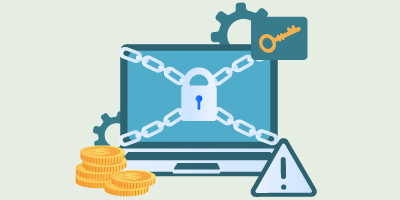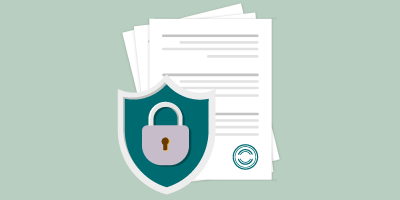In today’s data-centric world, companies often collect and store large amounts of internal and external data, including customers’ personally identifiable information (PII). To ensure this data is protected and used responsibly, organizations should implement and follow compliance programs to effectively mitigate any unauthorized access to critical information.
In this blog post and video, we’ll explore the topic of data compliance in cybersecurity and why it’s important for organizations to develop their own compliance program.
What does compliance mean in cybersecurity?
Compliance in cybersecurity involves establishing a program that outlines risk-based controls to safeguard the confidentiality, integrity, and accessibility of data that’s stored, processed, and transferred within any organization. Many industry, state, and federal regulations, such as the Health Insurance Portability and Accountability Act (HIPAA), also require organizations to follow set data compliance standards to ensure the protection of sensitive data.
Some information that is subject to compliance policies include:
First and Last Name
Mother’s Maiden Name
Date of Birth
Trade Secrets
Social Security #
Medical Information
Address
Employment Information
Compliance VS. Privacy
Compliance is often used interchangeably with privacy. However, they’re different concepts. Privacy is as an organization’s ability to safeguard sensitive information, whereas compliance is the documentation of these actions. Your organization may have policies in place to protect data, but you cannot prove control effectiveness without documentation. That’s where compliance enters the picture. Documenting risk monitoring and remediation in an easy-to-digest format helps meet and show adherence to compliance requirements.
Why is data compliance important?
Adherence to data compliance requirements will help strengthen your overall cybersecurity strategy and enable your organization to minimize the risk of data breaches and associated recovery costs, including reputation damage, loss of business, and business interruptions.
Data compliance programs will also help you maintain internal and external participants’ trust by ensuring private data remains secure. Making data compliance an organization-wide priority will signal to customers that you take their privacy and information security seriously, helping build loyalty and confidence in your brand.
How to create privacy and compliance within your organization?
To maintain a culture of privacy and compliance within your organization, it’s essential to implement a comprehensive data compliance policy to facilitate seamless communication throughout your company and to ensure your staff and IT department are aware of the established due process to analyze risks and document controls.
It’s important that all key staff and security stakeholders in your organization know:
- The established risk analysis process
- Controls to protect private data
- Policies in place to document compliance and controls
- How to continuously monitor and identify threats
Following policies not only protects you and your private information, but everyone involved with your organization. Maintaining data privacy and implementing compliance policies will help ensure your organization and customer information remains secure and out of the hands of threat actors.
Need assistance with Data Compliance?
Does your organization need assistance with implementing data compliance policies/programs? GraVoc’s Governance, Risk, & Compliance (GRC) services help organizations improve their overall security posture by reducing risk exposure, ensuring compliance with industry regulations, and aligning with information security standards and best practices. Click below to learn more!
Related articles
Change Healthcare Attack: Ransomware Protection Measures for Healthcare Organizations
In light of the Change Healthcare attack, we explore why hackers target healthcare and how healthcare can defend against ransomware.
GraVoc Recognized on CRN MSP 500 List for Second Year in a Row
For the second year in a row, GraVoc has been recognized on the CRN® MSP 500 list in the Pioneer 250 category!
PCI SAQ Types: Which SAQ is Right for Your Business?
In this blog post, we provide an overview of the SAQ types for PCI DSS v4.0 and how to select a PCI SAQ that’s right for your business.




